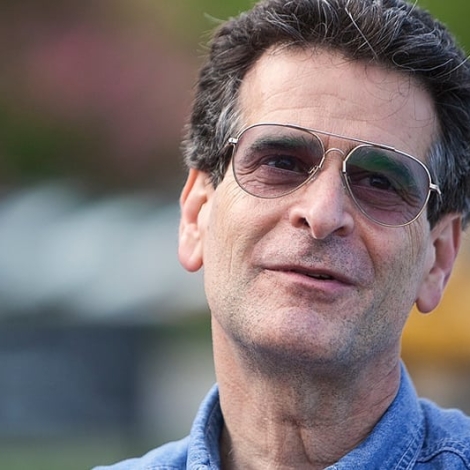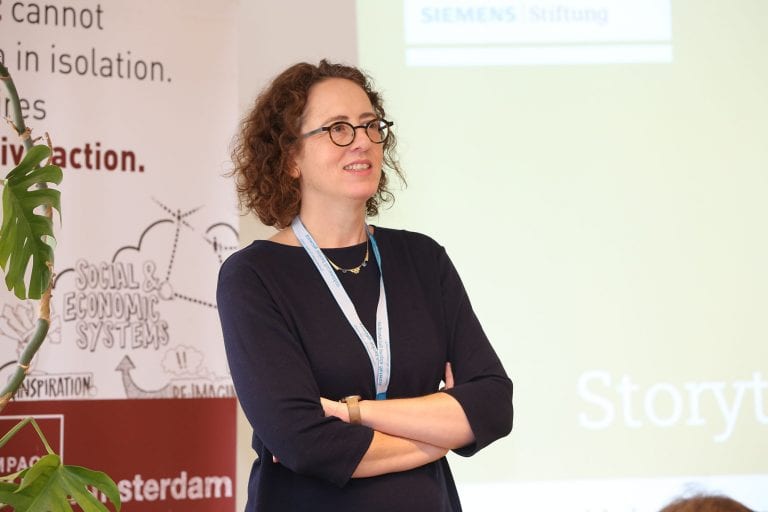Dean Kamen has achieved a double coup in global development engineering: First, he invented a powerful water purifier that treats river water, saltwater and even mud or raw sewage. Second, he has found a powerful partner to manufacture and distribute it.
Few towns in the world do not have a Coke for sale somewhere, and designers of solar lanterns, treadle pumps, clean-burning cookstoves and other products that can improve lives in developing communities dream of tapping into Coca Cola’s far-flung network. So, it’s fitting that Kamen, one of the titans of invention, should team up with the company.
I think it will be the people in emerging economies themselves who will be the ones to create the next generation of incredible technologies to help the developing world.
Kamen, popularly known as the inventor of the Segway, first gained notoriety in the medical field for his drug infusion pump AutoSyringe. He founded DEKA Research and Development Corporation to develop an eclectic variety of devices from prostheses to power generators. And he is now known to children and students worldwide as the founder of FIRST and the FIRST Robotics Competitions.
Kamen’s purifier, the Slingshot, is a vapor compression distiller that produces 10 gallons of water per hour while running on only one kilowatt of electricity (please see the image below for details). We asked him five questions.
E4C: What was the biggest technological hurdle to jump when you were developing the Slingshot?
DK: For any new technology, the biggest hurdle isn’t the engineering itself, it’s getting people to accept and use a new idea. Physics and chemistry are predictable; human behavior is not. We tried for a decade to find a partner with the vision and resources to help us bring Slingshot to those who need it most. It wasn’t until we began working with Coca-Cola that we found the right organization in terms of their ability to deliver products to remote places in the developing world.
E4C: What impact could the Slingshot have? (First the realistic answer, then the wildly optimistic answer.)
DK: Last year, we brought several of our machines to Ghana for trials and placed them in schools. Within a few months, the teachers were reporting that their students were happier and healthier, so we already know what sort of impact our device can have on a small scale. Optimistically, if this machine is deployed throughout the world, it has the potential to bring clean drinking water to the two billion people on this planet who lack it.”
E4C: What else are you working on that could improve lives in developed countries?
DK: In addition to the Slingshot, my engineers at DEKA have been working on improvements to the Stirling generator, an external-combustion engine that can produce electricity from virtually any liquid or gaseous fuel. These small generators could do amazing things in the developing world where people don’t have access to electricity. But even in the developed world, where infrastructures are growing old and unreliable and point-of-use power generation is becoming more appealing, the Stirling generator could have a great impact as well.

Dean Kamen poses with the latest generation of his water purifier. This version has shrunken in size. Its forebears were about as large as a refrigerator. Photo courtesy of Dean Kamen
E4C: People don’t often associate robotics with developing countries, but FIRST Robotics Competitions have seen teams from countries such as Brazil and Mexico. So, what are your plans for FIRST in emerging economies?
DK: My hope has always been that someday FIRST is available to every student on this planet with a desire to explore the possibilities of math and science. A country that possesses a smart and talented technological workforce has the best shot at creating a sustainable economy. FIRST has a proven record of encouraging kids to pursue careers in science, engineering, and technology. We will continue to grow FIRST not only in the United States, but also in emerging economies throughout the world. I have no doubt that in the years ahead FIRST will continue to grow in Latin America and Africa.
E4C: After FIRST and the Slingshot, what new plans do you have in mind for problem solving in emerging economies?
DK: If we are successful in our efforts to increase global access to water (and the accompanying health benefits), electricity (and the accompanying access to technology and communication), and FIRST (as a tool to both inspire students and give them the skills to succeed in technological fields), then I think it will be the people in emerging economies themselves who will be the ones to create the next generation of incredible technologies to help the developing world.
E4C: And a sixth question because we couldn’t resist: What advice do you have for inventors working on solutions to problems in developing countries?
DK: The unique situation with respect to innovation in and for the developing world is that the inventions need to be particularly sophisticated without being complex, because access to the infrastructure needed to acquire and maintain fragile, complicated systems will not be readily available. Simple, robust solutions that are simple to deploy and simple to maintain are particularly valuable in those environments.”

Click here for a larger version, or see the original at coca-colacompany.com (pdf)


good work
Excellent, Comprehensible and logical evolution or development of existing technologies for the betterment of mankind
Anyone hear anything further about this ? There were obvious problems – most obvious being no costing is given, so its presumably going to be above the affordable price of somewhere around US0.01/litre target. The cost of electricity alone (50 liters per kwH) was going to be above that target in many places since many places without clean water are also going to lack grid electricity.